
Alphabetical Menu
Chronological Menu
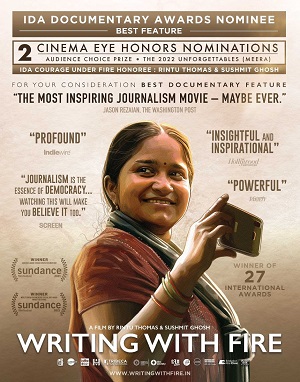
Writing with Fire sheds light on Dalit women from Northern India, Meera Davi, Suneeta Prajapatii and Shyamkali Devi, among others, who started a newspaper called Khabar Lahariya. Dalit, as the doc clearly explains at the very beginning, are women who are treated by society as the lowest caste in India. They're raped and dehumanized in other ways by men in the upper castes while the government ignores their pleas for basic needs like electricity in their villages. Co-directors Rintu Thomas and Sushmit Ghosh do an impeccable job of following the brave Dalit women from the inception of the newspaper to their obstacles along the way. They even started online journalism with video footage to reach more people and make more of an impact. Their perseverance and courage pays off because changes were indeed made after one of their news reports spread like wildfire online. It's inspiring to observe how they managed to conquer adversity and make a difference. Most importantly, they provide a sliver of hope for democracy, truth and justice in a society that oppresses women and suppresses freedom of the press. Naomi Wolf, who wrote about how the government shut down democracy by suppressing the press in The End of America, would be proud of them. The Dalit women clearly grasp that fighting for truth and justice through journalism is fundamentally about fighting for democracy and that it's easier to lose democracy than it is to gain it, so the fight for democracy must always continue. They're brave for risking their lives and should be commended for sharing their story which will hopefully compel others to find the inner strength and awareness to stand up against any form of oppression through the power of journalism. To watch the Dalit women of Khabar Lahariya come together to help each other and to be so compassionate toward others is also inspiring. They're aware that just because they're dehumanized by their society and government, it doesn't mean that they should dehumanize themselves and other people. In other words, they're great role models. The doc remains engaging from start to finish thanks to the compelling story of these women as well as the film's editing style that elevates it beyond just an average, dry documentary with talking heads. There's nothing dry at all about Writing with Fire. Even though the filmmakers focus on Khabar Lahariya, Writing with Fire is not limited in scope because also tackles larger human rights issues like truth, justice and democracy that will resonate with every compassionate human being around the world. After all, it's much easier to lose democracy than it is to gain it. Documentaries like Writing with Fire provide some much-needed fuel for the fight to keep democracy alive. At a running time of 1 hour and 32 minutes, Writing with Fire is an empowering, heartfelt and captivating documentary that's essential viewing for the sake of democracy. It'd be an interesting double feature with What is Democracy?. Music Box Films opens it at Film Forum. Licorice Pizza 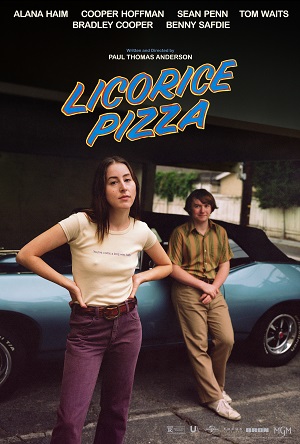 Gary Valentine (Cooper Hoffman), a 15-year-old, flirts with Alana Kane (Alana Haim), a 25-year-old photographer's assistant he meets at picture day at his high school. He finds the courage to ask her to meet him at a local restaurant, and she shows up despite her initial reluctance. They hit it off and wander around the San Fernando Valley together. He runs a waterbed company and pinball arcade in town while aspiring to be an actor. She helps him out with his business ventures before volunteering for a local politician, Joel Wachs (Benny Safdie). Set in 1973, Licorice Pizza is a laidback and breezy coming-of-age movie that's ultimately more than the sum of its parts. Writer/director Paul Thomas Anderson understands that a movie's plot isn't as important as the feeling that it captures within the plot. To adequately summarize Licorice Pizza's plot is just as difficult as summarizing Harold & Maude or Ghost World's plot. Both films are funny, tender and seemingly episodic while dealing with a relationship between a teenager and someone older. The age gaps between Harold and Maude as well as between Enid and Seymour are much, much wider than the age gap between Gary and Alana, but each of those films transcends their plot. Licorice Pizza isn't really about the romance between Gary and Alana just like Ghost World isn't really about the relationship between Enid and Seymour, and Harold & Maude isn't just about Harold and Maude's relationship. It's more about how Gary and Alana struggle to find purpose and direction within the chaos of their lives. They're both going through their own coming of age in a way and struggle to deal with emotional maturity as they navigate through life. Anderson eschews voice-over narration, so he trusts that the audience can find their own way of connecting the events in the film. Like Harold and Maude, Gary and Alana go on adventures together and almost get into trouble. There are no "big events", though, except for one that almost veers into thriller territory when Gary gets arrested for reasons that won't be spoiled here. For the most part, Anderson channels Richard Linklater's vibe and tone in Slackers and Dazed and Confused. No one gets shot or ends up in the hospital with cancer. There are some very funny and witty scenes, i.e. the Shabbat dinner scene with Alana, Lance (Skyler Gisondo) and Alana's family. Fortunately, the humor doesn't resort to the lowest common denominator; this isn't Superbad, after all, but it does get pretty outrageous in a trippy way when Sean Penn shows up as Jack Holden and Bradley Cooper as Jon Peters, a movie producer who's in a relationship with Barbara Streisand. A joke about how Gary mispronounces her last name is humorous, but it goes on a little too long. Between the comedic moments, there's just enough heartfelt moments between Gary and Alana to make their relationship feel poignant. The third act could be interpreted literally which would make it unrealistic, very Hollywood and cheesy or as a fairy tale that's only in the innocent, naive mind of Gary which would make it more realistic, less cheesy and less Hollywood. Again, Anderson leaves that up to the audience to decide because it could be argued both ways, much like Ghost World's open ending which can be taken literally or metaphorically. Cooper Hoffman, the son of Philip Seymour Hoffman, gives a solid performance as Gary. Alana Haim is a revelation as Alana Kane. She exudes pure, unadulterated warmth and charisma in her role. Even the supporting cast is terrific. Harriet Sansom Harris gives a hilarious performance in a brief scene at the beginning. Tom Waits is also superb as is Christine Ebersole and Maya Rudolph. They're all clearly having fun with their roles, and that fun transfers to the audience as well. Blink and you'll miss seeing a nearly unrecognizable John C. Reilly. The costume design, set design, cinematography and use of music are all top-notch and feel authentic to the 70's time period. Watch Licorice Pizza on a 35mm or 70mm print if your movie theater offers it instead of on digital because that's the best way to experience the film. Digital might often be sharper than film, but it lacks the warmth and glow of a film print. At a running time of 2 hours and 13 minutes, Licorice Pizza is a funny, sweet and tender coming-of-age film with shades of Dazed and Confused, Harold & Maude and Ghost World.
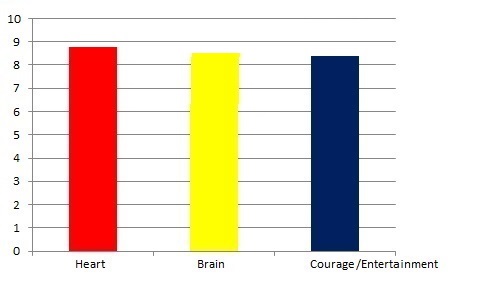 Railway Heroes 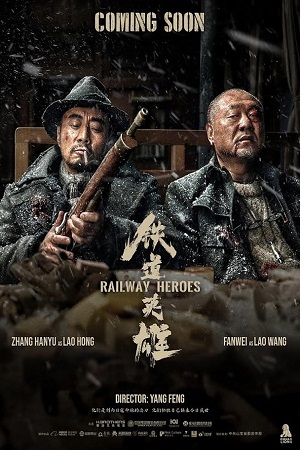
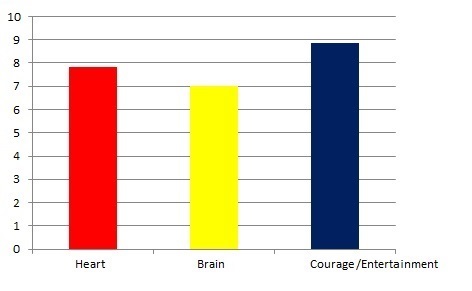 |